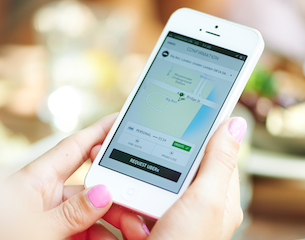App-based taxi firm Uber, is facing further legal action regarding the employee status and rights of its workers, this time from the US.

The US-based case, that of O’Connor et al. vs Uber Technologies, has been brought to the courts by three Uber drivers who claim that they should be treated as employees rather than independent contractors and that they therefore have a right to be reimbursed for expenses, such as fuel and vehicle maintenance costs.
The plaintiffs want to take action against Uber on behalf of every driver in the State of California, which is a total of approximately 160,000 drivers.
US District Court Judge Edward Chen has certified the drivers’ class action.
The judge rejected Uber’s argument that drivers’ employment classification cannot be adjudicated on a classwide basis, on the grounds that Uber’s claims that its drivers are too diverse for uniform treatment and that they are all classified as independent contractors is inherently contradictory.
However, the class action can only include drivers bound to Uber’s pre-2014 contract and some groups of drivers within this have also been excluded from the class action.
The court also denied the plaintiffs’ request to certify additional classes or subclasses of drivers, such as those who worked for distinct third-party transportation companies.
Abby Horrigan, managing counsel for employment at Uber, said: “Over a few hundred drivers who are actively driving with Uber today can now be part of this case because the ruling found that only drivers who either stopped driving before June 2014 or drove after June 2014 but chose to opt out of the arbitration option in their agreements, are eligible. Most of the growth in driver numbers has happened since then.
“Before June 2014, our business in California was mostly UberBLACK; primarily drivers who work for limousine organisations. They cannot be part of the case because the court has ruled that those drivers never had a contract directly with Uber.
“Individuals who registered with Uber as a corporation also cannot participate in the case, making the total likely to be less than 160,000. Indeed our early estimates show that the potential class is fewer than 15,000 drivers, which is less than 10% of the total.”
This case follows news in July that some Uber drivers in the UK, who are members of the National Union of General and Municipal Workers (GMB), claim that the organisation has breached its legal duty to provide staff with basic rights around pay, holiday, health and safety, and discipline and grievances.